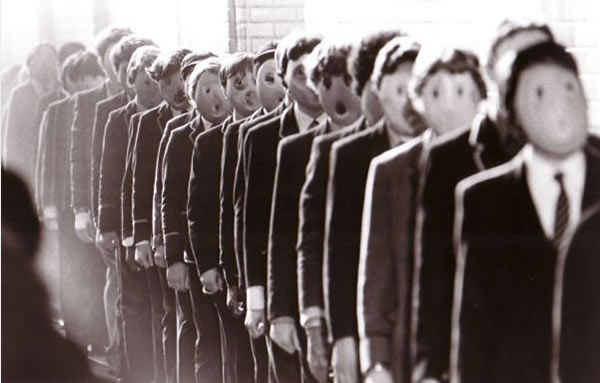The Sounds of Ideology
How music shapes, reflects, and retaliates against dominant culture
Contemporary popular songs that we hear on the radio, watch on YouTube, and recognize in elaborate remixes at dance parties have not been widely recognized for their explicit ideals. However, mainstream music didn’ t always hold this place in Western culture.
Audiences and critics often distinguish between music genres when discussing the impact that various songs produce. Rock and roll has been traditionally associated with rebellious attempts to subvert imposed order, while pop seems distant from political engagement. Back in the 1960s and 70s, many artists incorporated pacifying statements and critiques of civil injustice in the form of popular rock tunes. In their 1966 song “Paint it Black” the Rolling Stones introduced the depressing perspective of a man for whom “the whole world is black,” which perfectly embodied the social unrests towards the Vietnamese war. Roger Waters synthesized his bitter childhood memories of school with a caution towards growing state control in Pink Floyd’ s 1979 worldwide famous soundtrack “Another Brick in the Wall.”
The 1970s all-girl rock band The Runways in their upbeat single “Cherrybomb” challenged existing social beliefs regarding female modesty as young Cherrie Currie performed live wearing a corset in Tokyo.
Despite the rather provocative content of rock ‘ n’ roll songs of the time, Simon Firth in his collection of essays “Taking Popular Music Seriously” writes that the effects that 1960s and 70s rock generated resembled the effect that folk music had on fostering a mass sense of community and belonging. Firth’ s speculations have less to do with the actual content of rock music and more with the musicians abilities to break boundaries within their audiences while simultaneously encouraging “authentic expression[s] of a youth community.” Commercialism and consumerism, in Firth’ s arguments, were the primary elements of the dominant North American ideology that rock ‘ n’ roll offered an escape from.
Consumer culture was, and remains, a crucial, often decisive element in music production that also adheres to our dominant capitalist ideology. As the 1960s and 70s upheaval calmed down, pop tried to assert its power over consumer-listeners.
In the 1990s, critics and intellectuals began detecting less resistance to the dominant ideology as stronger conformity to capitalist culture became apparent in popular songs. In 1988, contributor to the Libertarian Alliance Tim Evans invoked a Marxist critique of popular music suggesting that record companies and performers reduce their fans to that of a passive consumer, as the listener “sells out to a market in which the public is ‘ manipulated’ or socialised into merely desiring and purchasing what’ s on offer.”
Apart from critiquing artist-consumer relations in their attempt to sell as much music as possible at the expense of artistic experimentation, Evans notes that while in the “1960s pop artists had been called ‘ entertainers’ ; in the early 1970s they were termed ‘ artists’ .”
Although Evans notes progressive punk bands like Sex Pistols encountered initial resistance from record companies that believed “Anarchy in the UK” simply wouldn’ t sell, their eventual success actually derived from provocative messages and innovative musical expressions.
So why is it that nowadays when social media allows for lenience in music censorship do we mostly hear songs about booties, hoes, hangovers and drugs? A popular YouTuber and DJ known as A Dose of Buckley expresses similar concerns for the lack of intelligible lyrics in popular music by preluding his Worst Songs of 2014 video with, “there’ s a lot of mediocre garbage that comes out every year.” He critiques, or rather completely trashes, Avril Lavigne’ s cringe worthy “Hello Kitty” song for encouraging North American stereotypes of funny looking Japanese school girls, all the while butchering randomly inserted Japanese words into her song. Although Lavigne’ s song can be read as ideologically provocative for its lack of cultural considerations of Japan, A Dose of Buckley admits that the singer was not trying to be deliberately racist, but simply attempted to play on popular stereotypes to sell more concert tickets.
YouTubers like A Dose of Buckley not only entertain us with heavy criticism of music that we may all know and love, but are aware of its simplicity and political obliviousness. In spite of this, it is still significant to note that regardless of their content or genre, songs are part of a larger ideological system of commercialism. Even without songs sending us explicit messages, the status of music and the industry can still tell us a lot about our cultural climate. And there’ s a wealth of culturally sharp, thoughtful music out there- we just have to look a little outside of radio hits. Today, we can even explicitly critique this music online, something that simply wasn’ t possible 50 or 60 years ago. As listeners, our participation in the musical industry is amplified with the growth of digital media and after all, isn’ t participation a key feature of democracy?
